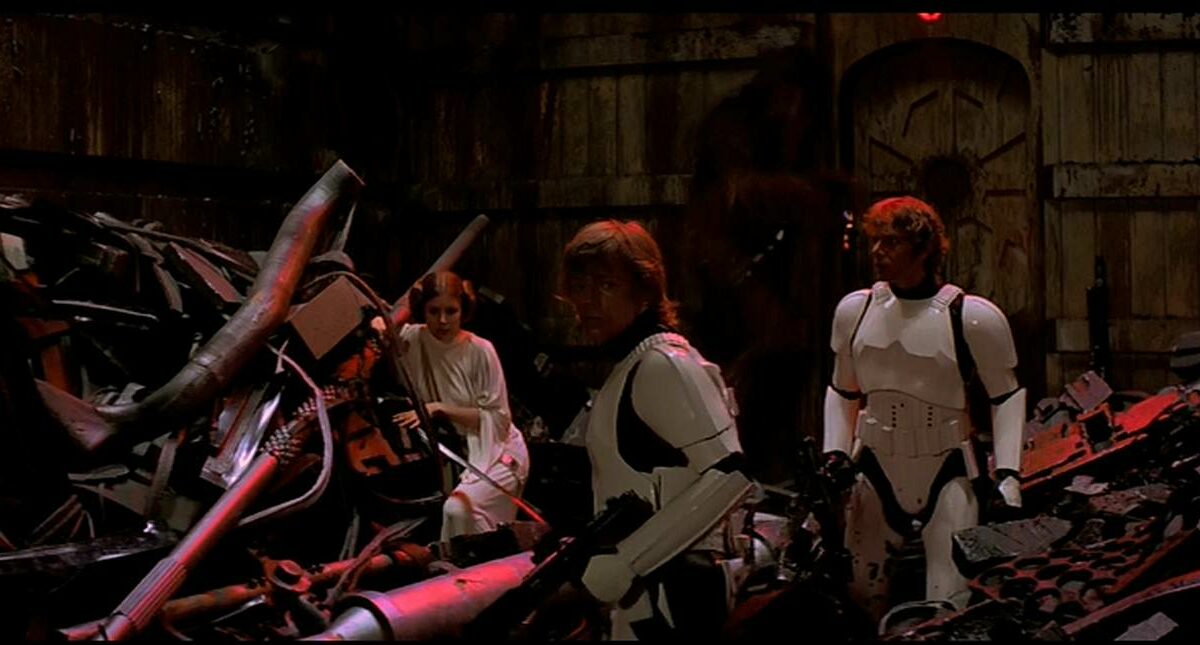Today’s best marketers are creating cause and brand loyalty by telling stories that deliver a pattern of meaning for a society in need of just that. They build communities of purpose and give people an empowering sense of us. All societies have relied on core myths to guide them, and too many of ours have been stretched to the point of breaking. Our hunger for these stories explains many of the greatest marketing successes of our time and points to the enormous responsibility marketers carry as creators of modern myths. Why? Because the wars fought over stories have always been the most critical fights in shaping a society’s future.
The drama played out between Glenn Beck and Annie Leonard is part of the ancient pattern of powerful worldviews colliding. In fact, as far back as we can see, all wars have been story wars. Take your pick: the conquest of the Philistines by the Hebrews; the Crusades; the German invasion of Poland; 9/11. Countless wars have been fought over stories—stories of a people holding a unique covenant with God; a city standing on a holy rock; a master race with a destiny to rule the world for a thousand years; the heavenly delights in store for martyrs. Powerful stories have spurred millions of men and women to acts—tragic and heroic acts—that have cost them their lives and fundamentally reshaped our world. The stories of the winners carry on and continue to define our reality.
Now, I’m going to make the (I hope) safe assumption that you’re not trying to sell a war. More likely you’re trying to sell an idea, a set of values, or a product. In other words, you’re a marketer, not a military recruiter. So why all this talk of war?
First, knowing that people will leave their families, risk death, and kill to live out or defend a story tells you how powerful stories can be in moving us to action. We have evolved with tremendous resistance to the idea of throwing ourselves into struggles that can end our lives. It’s called fear. And most societies reinforce that fear with strict taboos on killing. Yet a good story, well told, can wipe that all away. Stories have the power to radically alter people’s behavior—and changing people’s behavior so they’ll think, buy, or vote differently, despite their fear of change, is what marketing is all about.
Second, war is the most visible and sadly explosive way that competing stories collide. Literal war shows us how high-stakes the story wars can be. Centuries ago, societies were small and—when it came to stories—pretty homogenous. Everyone in a tribe, village, or kingdom shared the same stories from birth. When new stories appeared on the scene, they usually showed up with a competing group of people with a competing set of needs. Differing stories would both amplify and justify conflicts between groups, and, at times, they still do today. But more often than not, in societies like ours, which contain a mix of dozens of different cultures, stories can compete furiously without neighbors constantly taking up arms against each other. Here the story wars become less violent, but no less important. We still need stories to define us and the more stories that coexist, the more furiously they must compete for our attention.
In our media-saturated environment, overflowing with brand messages, product pitches, election season attack ads, and movies designed for product tie-ins, our most powerful storytellers are no longer shamans, priests, presidents, or generals. Today’s storytellers work at Pixar, creating animations about living cars that will become the year’s hottest holiday gift item; at Starbucks, making an easy emotional connection for you with a coffee farmer in Nicaragua; and at American Crossroads, Karl Rove’s media machine, crafting the tale of America’s next citizen-powered revolution. Everywhere, marketing is challenging the power of traditional storytellers. This year, my local mall declared the supremacy of marketers over holy men by building its Christmas tree out of shopping carts. Nobody seemed to object.
The battlefield of the story wars has moved to the marketplace.
While it was once assumed that the fate of our world would be written in holy texts or constitutions, it now appears that it will be written, at least in part, in marketing campaigns. More than half of the hundred largest economies in the world are not countries but corporations. Marketing is the language through which they speak to the customers that sustain them. In the United States, marketers are becoming some of the defining players in our democracy. In 2009, the Supreme Court ruled that corporations have the unlimited right to spend money to influence elections. The following year, more money flowed into the kind of political advocacy groups corporations can support than the past five mid-term election cycles combined. Who was put in charge of those millions? Marketers. And, though terrorism and nuclear weapons continue to be existential concerns, the most serious threats we face as a species— climate change, resource depletion, species loss—are crises of overconsumption driven by—guess who?—marketers.
Even if stories are not driving you into literal battle, they are still driving each of us to make decisions that will shape the future of our democracy and our planet. With marketers in charge, today’s story wars send causes, brands, and candidates into battle for the attention of their audiences. They recruit people into their own definition of us and get them to share that sense of belonging with others. They craft our inner worlds as well as the outer world we all share.
For marketers, the rise of the digitoral era has created a crisis. The traditional ways no longer work; suddenly, it’s evolve or die. The good news is that our audiences may need us as much as we need them. People everywhere are looking for ways to make sense of a rapidly changing world in which traditional stories no longer hold resonance. By shifting gears away from the now dysfunctional approaches of the past, marketers have the chance to reshape the media marketplace, orienting it to stories that have always worked in the oral tradition—those that call people to higher purpose. We can create patterns of stories that lift audiences up to become evangelists for our messages and call them to participation in creating a better world. After decades of antagonism between marketers and their audiences, the new media landscape offers the hope for something far more satisfying for both sides. This era offers a whole new way to fight, and win, the story wars—with audiences as our allies rather than our targets.
Contributed to Branding Strategy Insider by: The Harvard Business Review Press. Excerpted from Winning the Story Wars: Why those who tell—and live the best stories will rule the future. Copyright 2012 Jonah Sachs.
The Blake Project Can Help: The Strategic Brand Storytelling Workshop
Branding Strategy Insider is a service of The Blake Project: A strategic brand consultancy specializing in Brand Research, Brand Strategy, Brand Licensing and Brand Education





One comment
Noah Ullman
September 8, 2012 at 1:15 pm
Its the idea behind the story that motivates, not the story itself. The story can clarify or focus the idea, but the idea is key. I think this was overlooked in the article.
Comments are closed.